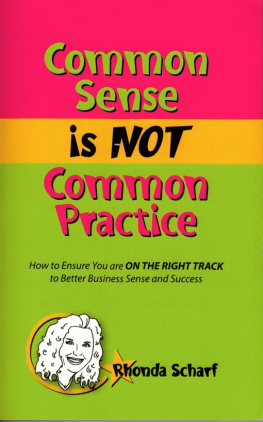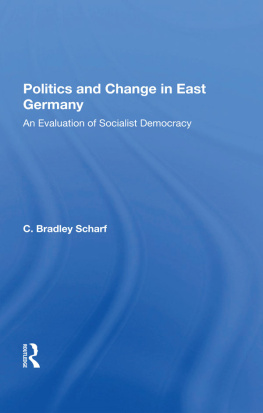Yehuda Amichai
THE MAKING OF ISRAEL'S NATIONAL POET
Nili Scharf Gold
BRANDEIS UNIVERSITY PRESS
Waltham, Massachusetts
Published by University Press of New England
Hanover and London
BRANDEIS UNIVERSITY PRESS
Published by University Press of New England,
One Court Street, Lebanon, NH 03766
www.upne.com
2008 by Brandeis University Press
All rights reserved. No part of this book may be reproduced in any form or by any electronic or mechanical means, including storage and retrieval systems, without permission in writing from the publisher, except by a reviewer, who may quote brief passages in a review. Members of educational institutions and organizations wishing to photocopy any of the work for classroom use, or authors and publishers who would like to obtain permission for any of the material in the work, should contact Permissions, University Press of New England, One Court Street, Lebanon, NH 03766.
Library of Congress Cataloging in Publication Data
Gold, Nili Scharf.
Yehuda Amichai : the making of Israel's national poet / Nili Scharf Gold. [1st ed.]
p. cm. (The Tauber Institute for the Study of European Jewry series)
Includes bibliographical references and index.
ISBN 9781584657330 (cloth : alk. paper)
1. Amichai, Yehuda. 2. Poets, IsraeliBiography. 3. Amichai, YehudaCriticism and interpretation. I. Title.
PJ5054.A65Z686 2008
892.4'16dc22
[B] 2008015514
To Billy, Doria, Avitai, and Jocelyn,
with all my love
And to the memory of my half-sister, Chana Scharf,
who perished during the Holocaust
THE TAUBER INSTITUTE FOR THE
STUDY OF EUROPEAN JEWRY SERIES
Jehuda Reinharz, General Editor
Sylvia Fuks Fried, Associate Editor
The Tauber Institute Series is dedicated to publishing compelling and innovative approaches to the study of modern European Jewish history, thought, culture, and society. The series has a special interest in original works related to the Holocaust and its aftermath, as well as studies of Zionism and the history, society, and culture of the State of Israel. The series is published by the Tauber Institute for the Study of European Jewryestablished by a gift to Brandeis University from Dr. Laszlo N. Tauberand the Jacob and Libby Goodman Institute for the Study of Zionism and Israel, and it is supported, in part, by the Tauber Foundation.
For the complete list of books that are available in this series,
please see www.upne.com and www.upne.com/series/TAUB.html.
THE SCHUSTERMAN SERIES IN ISRAEL STUDIES
Editors
S. Ilan Troen
Jehuda Reinharz
Sylvia Fuks Fried
The Schusterman Series in Israel Studies publishes original scholarship of exceptional significance on the history of Zionism and the State of Israel. It draws on disciplines across the academy, from anthropology, sociology, political science and international relations to the arts, history and literature. It seeks to further an understanding of Israel within the context of the modern Middle East and the modern Jewish experience. There is special interest in developing publications that enrich the university curriculum and enlighten the public at large. The series is published under the auspices of the Schusterman Center for Israel Studies at Brandeis University.
For the complete list of books that are available in this series, please see www.upne.com.
An analytic study of Yehuda Amichai must address the conflict between the poet's German past and his new homeland. I have spent most of my adult life in the United States, far from my Hebrew mother tongue, and I knew the struggle inherent in linguistic double allegiance and the substitution of one landscape for another. I believed that despite Amichai's love for Israel and its language, he could not have rid himself of all traces of his childhood.
The persistence of Amichai's German birthplace and mother tongue in his creative process is manifest in the papers I scoured in the Beinecke Library at Yale University, the previously unknown documents I discovered, and interviews I conducted.
When I set out, I realized that the central thesis of the book would be provocative. Indeed, Yehuda Amichai is Israel's beloved unofficial national poet whose Hebrew works are seen by many as wholly and emblematically Israeli. The act of revealing his German origins may upset some of his admirers. As I show in this book, however, Yehuda Amichai, who was born Ludwig Pfeuffer, carried the sights, sounds, and experiences of his youth in Germany with him, and they contributed to making him the rich and layered poet we know today.

Over the course of my research, I had the unique privilege of meeting Ruth Z., the woman whom Amichai knew in Jerusalem from 1946 through 1947. The twenty-two-year-old Amichai, as seen through her eyes, and her spellbinding personal history, became integral to my narrative. In our many conversations, I not only learned about the poet as a young man, but also gained a new perspective on Jewish and Israeli history and the years of the struggle for independence. I am forever grateful to her for the documents she imparted to me, her incredible memory, and her clarity of vision. She made an unmatched contribution to this book and the field of Amichai studies as a whole.
I owe a tremendous debt to those who helped me reconstruct Amichai's German childhood, his hometown, and the life of its Jewish community that no longer exists. I interviewed Jewish children of Wuerzburg, survivors who were born or grew up there in the 1920s and 1930s. Most of them knew Amichai, attended the same school or synagogue, or sang with him in the boys' choir. I met them face to face and, in a few cases, conducted long-distance phone interviews. Together, they formed a virtual memory chain, each directing me to another Wuerzburgian who would enrich and color the portrait of the child Amichai in a different way. Norbert Hellmann, Amichai's classmate, and the son of Moritz Hellmann, who was both the last director of the school and the conductor of the synagogue choir, remembered the mischievous Ludwig. Hellmann guided me through the Jewish school day and curriculum, daily prayers, beloved rituals, choir rehearsals, and favorite romping grounds. Ludwig Bravman was also a classmate of Amichai's and a member of the same Orthodox circle. He provided incomparable testimony about their class, classmates, and teachers. Bravman tenderly and affectionately recalled the bright and spunky Ruth Hanover, Amichai's best friend and the rabbi's daughter. Ruth Kobliner (ne Katzmann) was Amichai's distant cousin who spent summer vacations with him and his sister in their grandparents' village from the time they were all little children. When her father died, her mother married Rabbi Hanover and she became Ruth Hanover's stepsister. Kobliner's intimate depictions of her stepsister and of Amichai's family's household in Wuerzburg and Jerusalem were invaluable. Her portrayal of Amichai's father, Friedrich Pfeuffer, was an independent testament to this man's kindness. Like Kobliner, Mordechai Einsbacher spoke with admiration about this righteous man, a cornerstone in Amichai's poetry. Einsbacher also recalled fondly how Wuerzburg's children watched the trains and inhaled their smoke.
Henry (formerly Hans) Eschwege, the son of the cantor-mohel Ruben Eschwege, told me about his father's artistic designs for the mappot, the ribbons that tied Torah scrolls. Eschwege also drew a vivid picture of the synagogue milieu and of Rabbi Hanover, whom Amichai revered. Otto Schlame, the musical son of the violin teacher, was in the choir with Amichai, Bravman, Eschwege, and Hellman. He remembered how, on Simhat Torah, the choir boys watched jealously as the other children followed the Torah with bags, which the adults filled with sweets, when suddenly they were showered with candy, thrown from the synagogue's women's gallery. Schlame also shared with me the nickname for the devilish LudwigPfif. Elizabeth (formerly Ruth) Cecchetti (ne Schwabacher) was younger, and therefore did not know Amichai, but she could reconstruct her childish perception of the atmosphere in Wuerzburg and the scary walks to the Jewish school in the mid-1930s. She gave me a rare photograph of the second-grade classroom and recalled in detail the teachers, especially the caring Mr. Gruenfeld. She connected me to her older brother, Bill (formerly Wolfgang) Schwabacher, who, in Wuerzburg, tried to protect his sister on their long walks to school. Children of a Liberal, non-Orthodox family, the Schwabachers provided a somewhat different perspective on the school and the community. Finally, I would like to thank Yehudit Silber, Ruth Kobliner's daughter, for the precious photographs she generously sent me.











